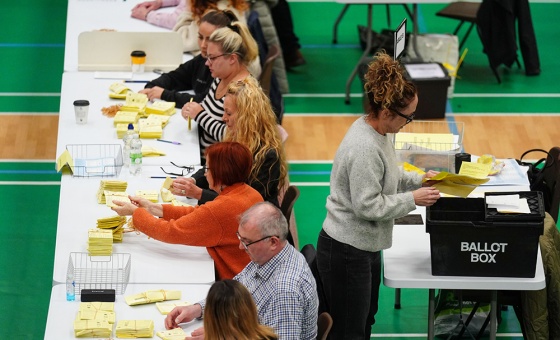This is the last article you can read this month
You can read more article this month
You can read more articles this month
Sorry your limit is up for this month
Reset on:
Please help support the Morning Star by subscribing here
KURDISH journalists have vowed to continue their journey on the “irreversible path” to the truth and give a voice to the voiceless, despite intense pressure from the Turkish state.
“We frustrated the history imposed on us by the rulers. We’ve eliminated despair and darkness” by continuing that journey, Mesopotamia Agency (MA) editor-in-chief Sedat Yilmaz told the Morning Star today.
“Today we are proud to be the voice and breath of Armenians, Syriacs, Greeks, Chaldeans, Circassians, Yazidi, women, refugees, children, poor, workers and labourers who share a similar fate with us. Despite all the pressure and intimidation policies, we continue our march,” he said.
Mr Yilmaz was speaking ahead of the 123rd Kurdish Journalism Day today, which marks the anniversary of the day the first Kurdish newspaper, the Kurdistan, was published by Miqdad Midhed Bedirxan in Cairo: April 22 1898. The first edition consisted of four pages, and it ran for 31 issues before closing in April 1902.
Its publication was seen as a turning point in the struggle for Kurdish language rights, but it came under intense pressure and struggled to survive. Production of the paper was constantly forced to move, with issues published in Geneva, London and Folkestone in Kent, where five editions were put together.
Attacks on press freedom have continued ever since — Turkey remains the world’s leading jailer of journalists.
Mr Yilmaz explained that Kurdish people have had their language, culture, arts, politics, economy and self-defence banned in their own lands, which have been divided among four countries.
Those working in the Kurdish media have done so under war conditions, facing constant pressure. Instances of the killing of journalists include Musa Anter, who was shot dead by Turkey’s shadowy Jitem paramilitary death squad in 1992.
And in 1994, the Istanbul and Ankara offices of the MA predecessor the Ozgur Ulke (Free Country) newspaper were bombed on the orders of then Turkish prime minister Tansu Ciller, Mr Yilmaz said.
Firat Journalists Association spokeswoman Dicle Muftuoglu told the Morning Star that the day “has a great meaning for journalists who resisted to reflect the struggle of a people in this land for more than 100 years.
“In the face of all these pressures, the determination to continue this tradition of free press from Musa Anter to Deniz Firat never ceased. Kurdish journalists continue to be in the field and write today, as they did yesterday.”
Mr Yilmaz said that Kurdish journalists “have destroyed the perception that history will be written in favour of the rulers: we have comrades all over the world on this irreversible path.
“You are there for us. There are our colleagues in the Morning Star who tell its readers about what is done to us, and how we fought back. Greetings to you from the Kurds.”










